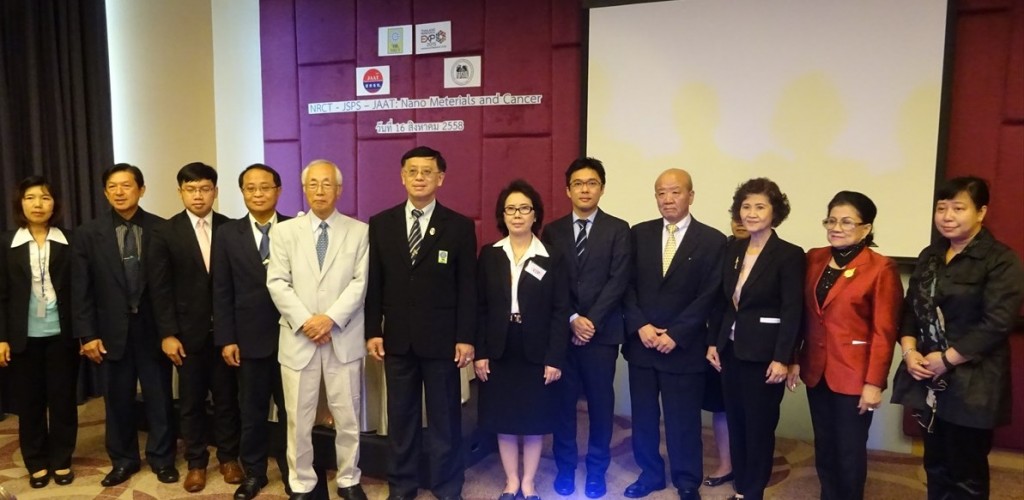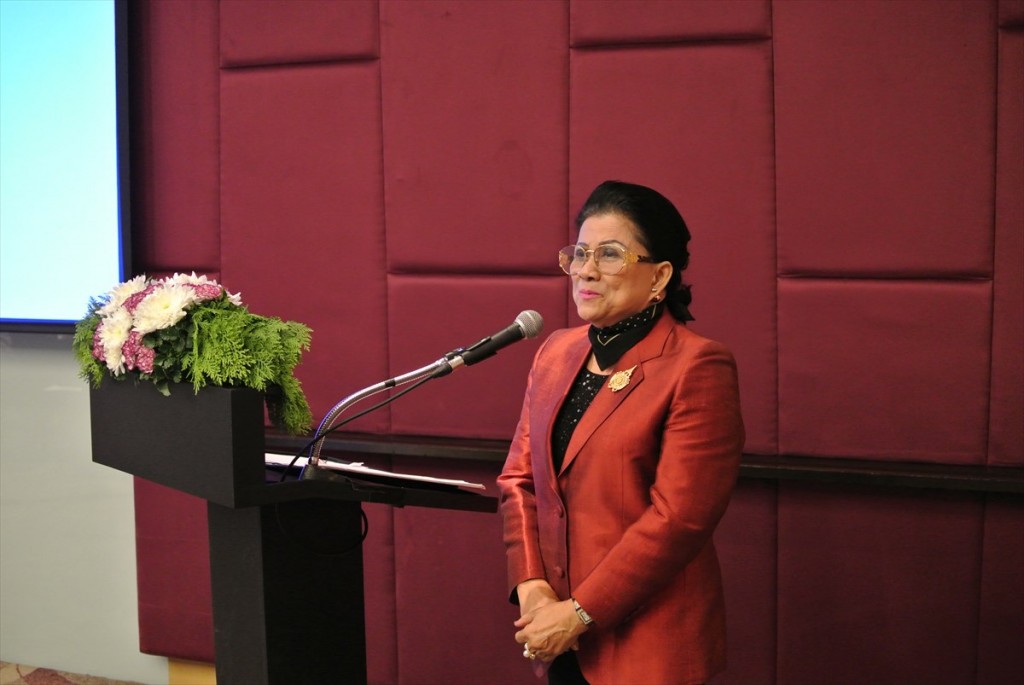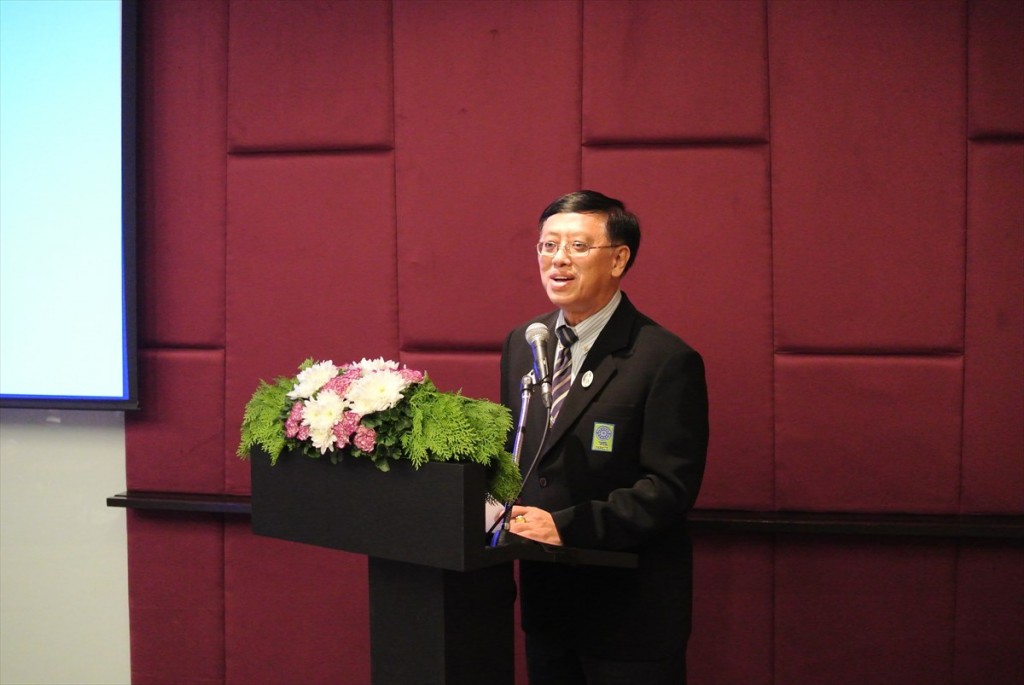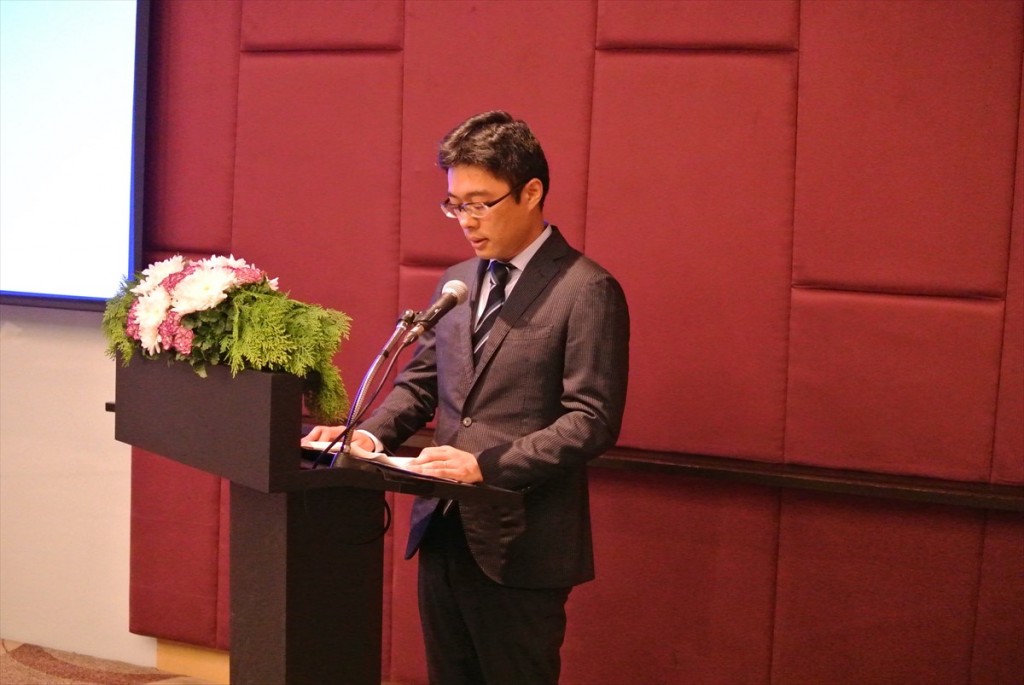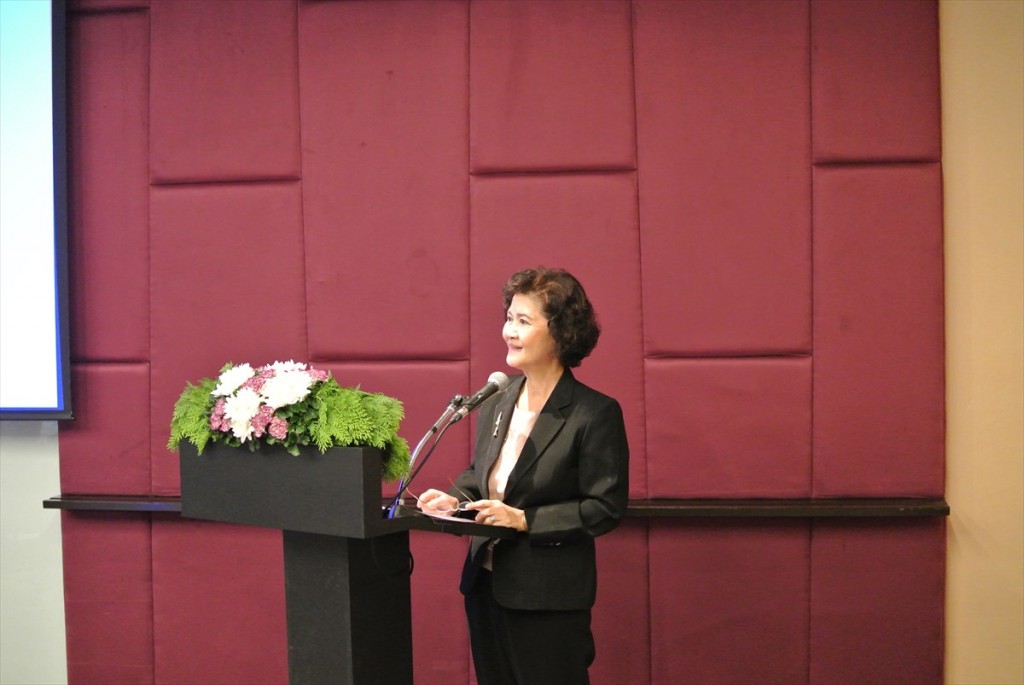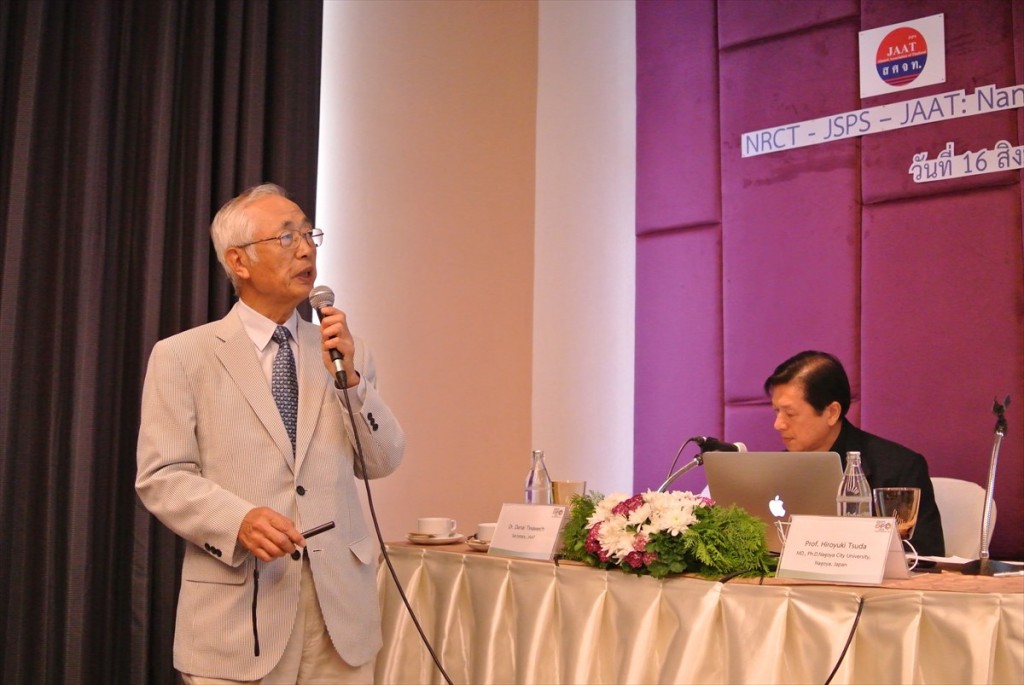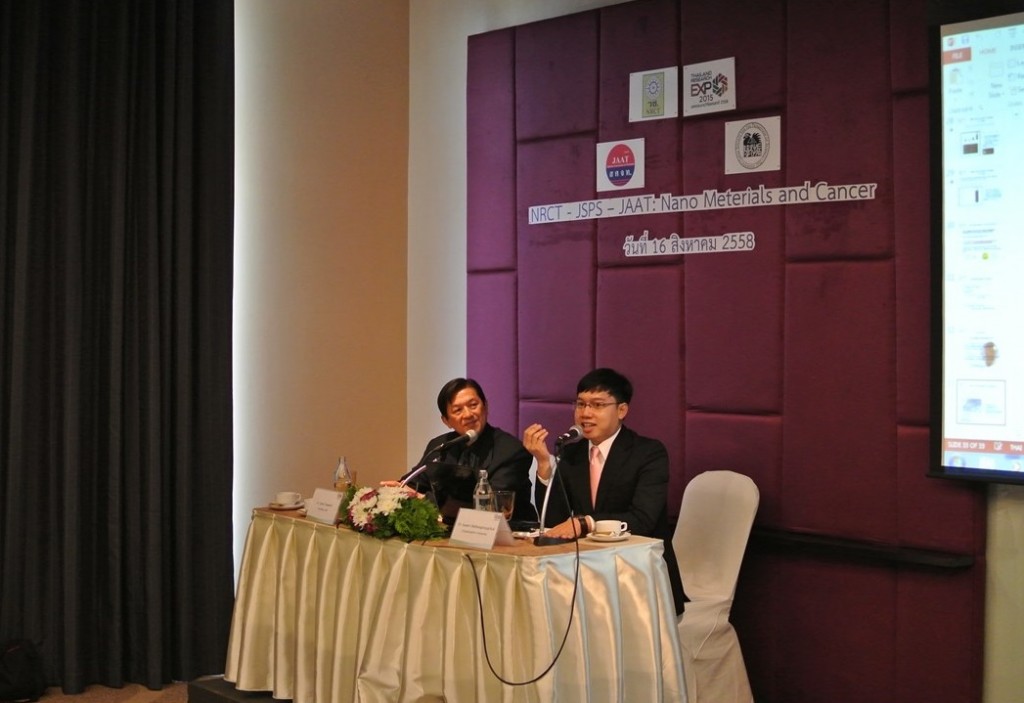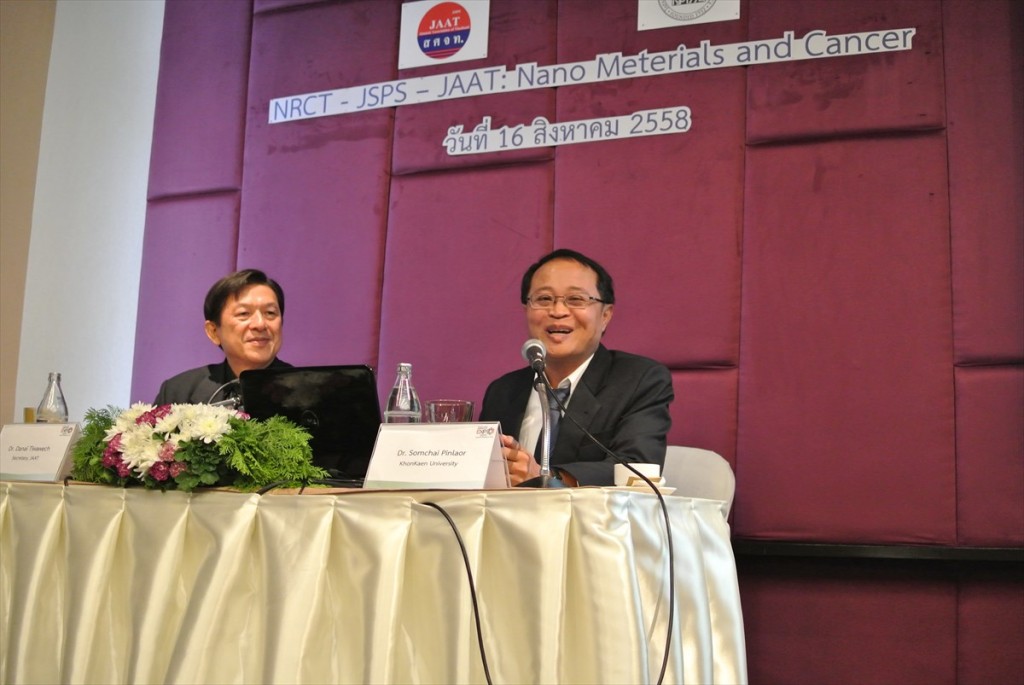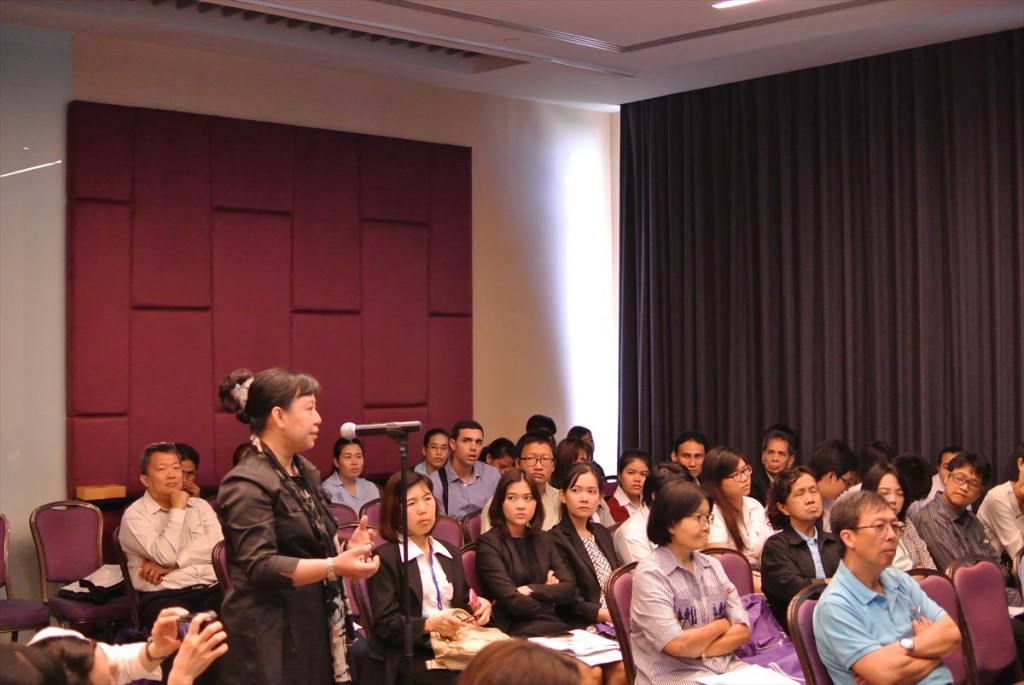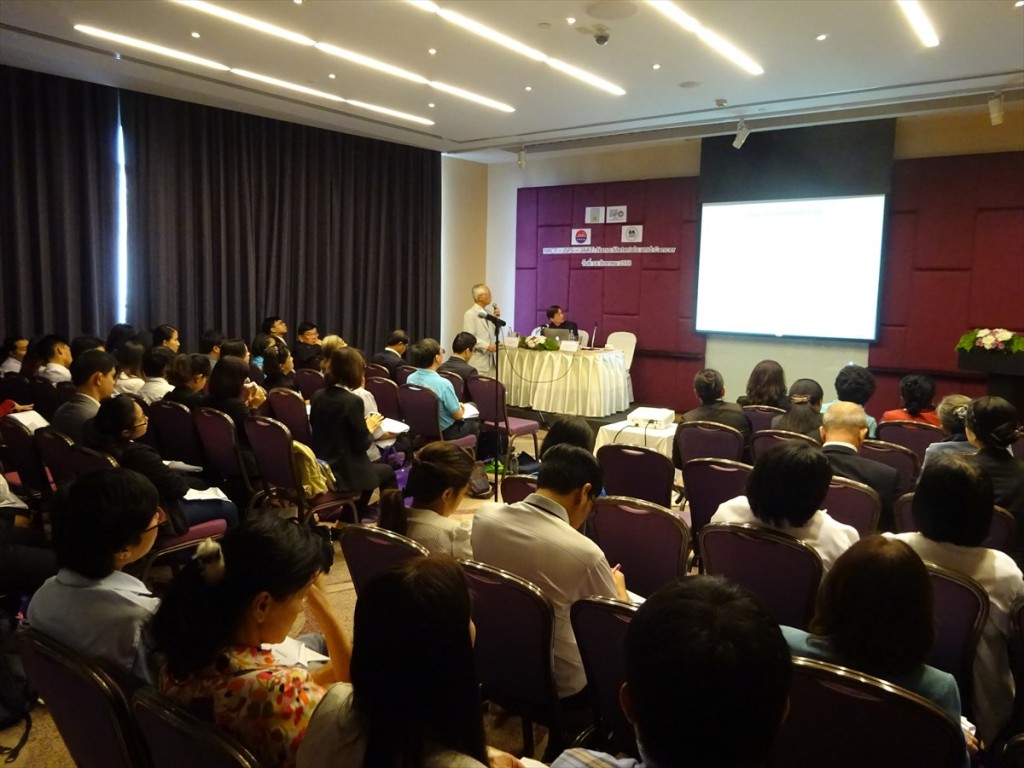On August 16, the JSPS Alumni Association of Thailand (JAAT) put on a seminar titled “Nanomaterials and Cancer.” The seminar was held as a part of “Thailand Research Expo 2015” under the cooperation of National Research Council of Thailand (NRCT) and JSPS.
The seminar was kicked off with the welcome remarks from Mr. Kristhawat Nopnakeepongse, Deputy Secretary-General of NRCT, Mr. Hiroshi Ando, Head of International Policy Planning Division of JSPS Tokyo Headquarters and Dr. Sunee Mallikamarl, President of JAAT.
Dr. Danai Tiwawech, Secretary of JAAT and Dr. Wichet Leelamanit, Vice Secretary of JAAT chaired the seminar.
The first lecture titled “Mechanism based short-term assay model for carcinogenic effect of nanomaterials” was delivered by Dr. Hiroyuki Tsuda, Nagoya City University, Japan. Dr. Tsuda firstly explained the background of his research, claiming that various types of carbon nanomaterials are currently introduced in the market far exceeding safety testing capabilities, since whole body exposure test requires huge facility and enormous cost. As a solution, Dr. Tsuda is working on the development of short-term assay models. In the lecture, he introduced three study designs and the mechanisms of them.
The second lecture titled “Nanotoxicology versus Cancer”, delivered by Dr. Kasem Rattanapinyopituk, Faculty of Veterinary Science, Chulalongkorn University. Dr. Kasem spoke about Nanotoxicology in Cancer therapy. The application of Nanoparticles (NPs) is effective for detection, imaging and drug delivery to directly effect to cancer cell through EPR effect (Enhanced Permeation and Retention Effect). On the other hand, he pointed out Nanotoxicity may induce cancer through DNA damage of normal cells.
The last lecture titled“Nanoencapsulated curcumin on periductal fibrosis, a predisposing lesion of Opisthorchiasis-associated cholangiocarcinoma” delivered by Dr. Somchai Pinlaor, Faculty of Medicine, Khon Kaen University. Dr. Somchai firstly explained about Opisthorchiasis viverrini which induces cholangiocarcinoma and then talked about the investigation whether nanoencapsulated curcumin could resolve of periductal fibrosis in Opisthorchiasis viverrini through experimentation on animals.
Recently Thai people are keen on health issues especially cancer, it was proved by the fact that more than 100 audience joined this seminar.








